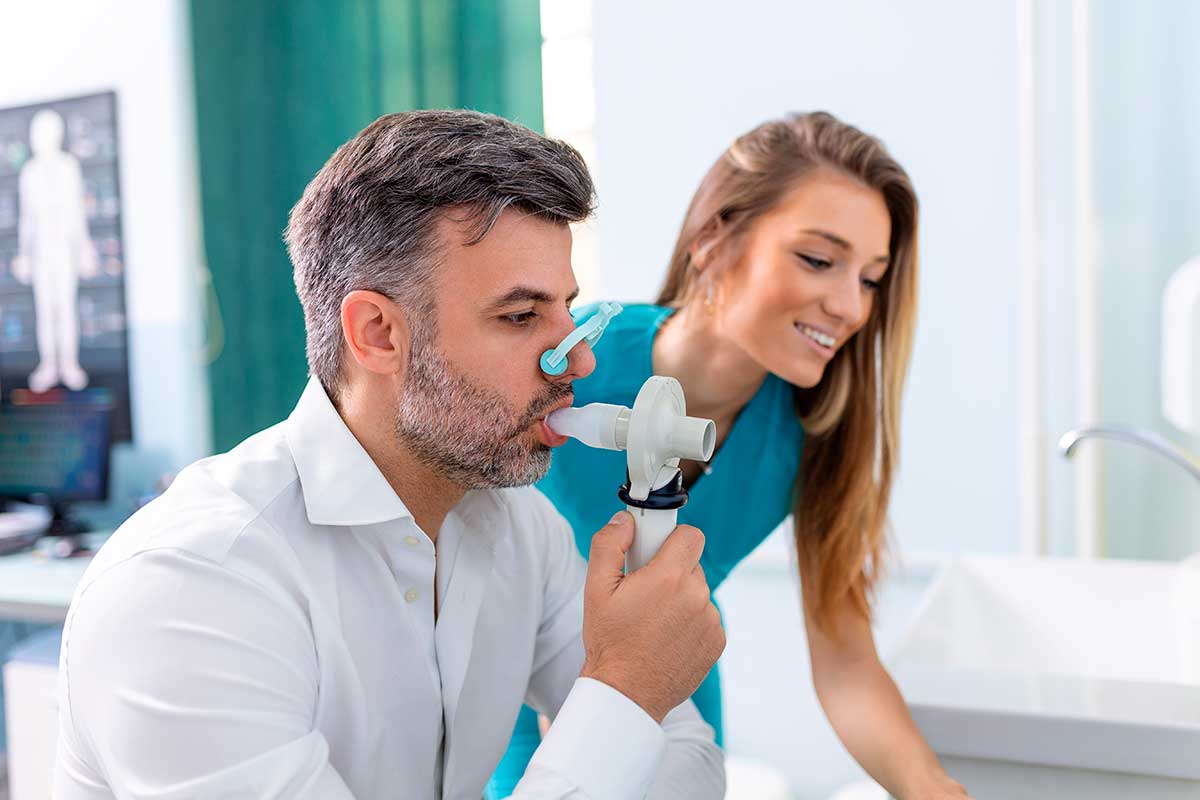
Pulmonologist
Watch our video about Pulmonologist
A Pulmonologist is a medical specialist who diagnoses, treats, and prevents diseases of the respiratory system, including the lungs, airways, and breathing mechanisms. Their work is essential for ensuring proper lung function and managing conditions that affect oxygen intake and overall respiratory health.
Pulmonologists provide care for chronic lung diseases, infections, and breathing disorders, helping patients improve lung function and quality of life. They offer treatments ranging from medications and inhalers to oxygen therapy and pulmonary rehabilitation.
What Conditions Does a Pulmonologist Treat?
A Pulmonologist specializes in diagnosing and managing various respiratory conditions, including:
- Asthma – A chronic condition that causes airway inflammation, wheezing, and breathing difficulty.
- Chronic Obstructive Pulmonary Disease (COPD) – A progressive lung disease that includes chronic bronchitis and emphysema.
- Pneumonia – A bacterial or viral infection that inflames the air sacs in the lungs, causing cough, fever, and breathing difficulty.
- Lung Cancer – A serious condition that develops in lung tissues, often requiring specialized treatment.
- Pulmonary Embolism – A blockage in the lung’s arteries caused by blood clots, which can be life-threatening.
- Sleep Apnea – A condition that causes breathing interruptions during sleep, leading to fatigue and health complications.
- Interstitial Lung Disease (ILD) – A group of disorders that cause lung scarring, affecting breathing and oxygen exchange.
How Can a Pulmonologist Help?
A Pulmonologist provides critical care for acute and chronic lung diseases, helping patients manage symptoms, improve breathing, and prevent complications. Through medications, oxygen therapy, and lifestyle changes, they enhance lung function and respiratory efficiency.
Beyond treatment, pulmonologists focus on preventive care, offering guidance on smoking cessation, air quality improvement, and vaccination against respiratory infections. Their role is essential in protecting lung health and preventing disease progression.
What Tests Does a Pulmonologist Order?
To diagnose and monitor respiratory conditions, a Pulmonologist may request several medical tests, including:
- Pulmonary Function Tests (PFTs) – Measures lung capacity and airflow to assess breathing disorders.
- Chest X-Ray – Provides images of the lungs to detect infections, lung diseases, or structural abnormalities.
- CT Scan of the Chest – Offers a detailed view of the lungs to diagnose conditions like lung cancer and pulmonary embolism.
- Bronchoscopy – A procedure that uses a camera to examine the airways and collect tissue samples if needed.
- Arterial Blood Gas (ABG) Test – Measures oxygen and carbon dioxide levels in the blood to evaluate lung function.
- Sleep Study (Polysomnography) – Diagnoses sleep apnea and other breathing disorders during sleep.
- Sputum Culture – Identifies infections in lung secretions, such as tuberculosis or pneumonia.
When Should You See a Pulmonologist?
It is crucial to visit a Pulmonologist if you experience persistent or severe respiratory symptoms. Some key reasons to schedule an appointment include:
- Chronic Cough That Lasts More Than 8 Weeks – A persistent cough may indicate asthma, COPD, or infections, requiring a professional evaluation.
- Shortness of Breath or Difficulty Breathing – If you struggle to breathe during daily activities, this could be a sign of lung disease, heart problems, or reduced lung capacity.
- Wheezing or Noisy Breathing – If you hear wheezing, whistling, or rattling sounds while breathing, this may indicate asthma, bronchitis, or airway obstruction.
- Frequent Lung Infections (Pneumonia, Bronchitis) – Recurring respiratory infections can be a sign of chronic lung conditions or a weakened immune system.
- Unexplained Fatigue and Weakness – If you feel constantly tired or weak, poor oxygen exchange in the lungs could be affecting your overall energy levels.
- Snoring and Interrupted Breathing During Sleep – If you or your partner notice snoring, choking, or gasping for air during sleep, you may have sleep apnea, which requires medical attention.
- History of Smoking or Exposure to Pollutants – If you have been exposed to tobacco smoke, pollution, or occupational hazards, regular lung checkups help detect early lung disease or cancer.
If you experience any of these symptoms, schedule an appointment with a Pulmonologist at Clinic Consultation today. Early diagnosis and proper treatment can significantly improve respiratory health and quality of life.
How to Prevent Respiratory Diseases?
Protecting lung health involves healthy habits and preventive measures. Here are some essential steps to reduce the risk of respiratory diseases:
- Quit smoking – Tobacco use is the leading cause of lung disease, including COPD and lung cancer.
- Avoid exposure to air pollutants – Limit exposure to dust, smoke, and harmful chemicals that irritate the lungs.
- Stay physically active – Regular exercise improves lung capacity and oxygen circulation.
- Practice good hygiene – Washing hands frequently helps prevent respiratory infections like the flu and pneumonia.
- Get vaccinated – Annual flu shots and pneumonia vaccines help protect against serious lung infections.
- Maintain a healthy weight – Excess weight can restrict lung function and worsen breathing conditions.
- Monitor symptoms and seek medical care early – Addressing breathing difficulties, cough, and fatigue early can prevent severe complications.
What to Ask a Pulmonologist During Your First Consultation?
To make the most out of your visit, consider asking your Pulmonologist the following questions:
- What could be causing my breathing problems?
- Do I need pulmonary function tests or imaging scans?
- What treatment options are available for my condition?
- How can I improve my lung health and breathing capacity?
- Are there any lifestyle changes I should make to prevent further lung damage?
- Do I need oxygen therapy or special respiratory treatments?
- What symptoms should I monitor for possible worsening of my condition?
Understanding your lung health ensures better respiratory function and disease prevention.
If you need expert pulmonary care, book an appointment with a Pulmonologist at Clinic Consultation today. Our specialists provide comprehensive diagnosis, treatment, and prevention strategies for all respiratory conditions.
Click here to schedule an appointment online